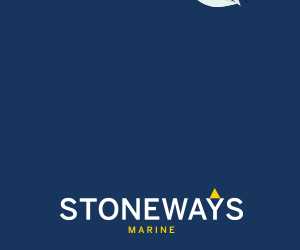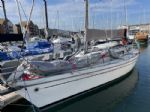












Boats for sale
| Laser 28 - Excellent example of this great design Hamble le rice |
 |
| Laser 161752 Tynemouth |
 |
| Laser 140101 Tynemouth |
 |
List classes of boat for sale |
Where theres blame theres a claim |
Post Reply 
|
Page 12> |
| Author | ||||||||
Rupert 
Really should get out more 
Joined: 11 Aug 04 Location: Whitefriars sc Online Status: Offline Posts: 8956 |
 Post Options Post Options
 Quote Quote  Reply Reply
 Topic: Where theres blame theres a claim Topic: Where theres blame theres a claimPosted: 03 Feb 15 at 1:42pm |
|||||||
|
Reading the comment on another thread about "just a racing accident" and how our rules have no such thing, it made me wonder - are our rules too much like the "somebody must be at fault" culture that seems to be taking over in real life?
Would sailing work better if when 2 people bump into each other, neither boat really doing anything too silly, no damage done, we just say, oops, sorry, and carry on? It is the situation we often see at club level, but it can leave people feeling out of sorts because they "know" that someone "ought" to have done something. If that guilty feeling was taken away, wouldn't our racing be more simple? Edited by Rupert - 03 Feb 15 at 1:43pm |
||||||||
|
Firefly 2324, Puffin 229, Minisail 3446 Mirror 70686
|
||||||||
 |
||||||||
Washy71 
Groupie 
Joined: 01 Jul 14 Online Status: Offline Posts: 56 |
 Post Options Post Options
 Quote Quote  Reply Reply
 Posted: 03 Feb 15 at 2:12pm Posted: 03 Feb 15 at 2:12pm |
|||||||
In the case mentioned I couldn't see him and he couldn't see me. My immediate concern was making sure none of us was in danger. He wasn't hanging around when we crashed so got thrown forward quite badly. I was genuinely worried for him. His boat sustained some damage to the wings, port side wing gone completely. My boat had a minor dent. We took care of our own repairs without seeking to blame or claim from each other. |
||||||||
|
D-Zero GBR71
|
||||||||
 |
||||||||
Null 
Really should get out more 
Joined: 11 May 14 Online Status: Offline Posts: 745 |
 Post Options Post Options
 Quote Quote  Reply Reply
 Posted: 03 Feb 15 at 2:23pm Posted: 03 Feb 15 at 2:23pm |
|||||||
|
I've seen you sailing Washy. it was probably your fault....

|
||||||||
 |
||||||||
Washy71 
Groupie 
Joined: 01 Jul 14 Online Status: Offline Posts: 56 |
 Post Options Post Options
 Quote Quote  Reply Reply
 Posted: 03 Feb 15 at 2:34pm Posted: 03 Feb 15 at 2:34pm |
|||||||
Haha! What's foxed me is we were both on starboard. I was going upwind, him downwind. Years ago the rules stated a close hauled boat had right of way over a boat that wasn't close hauled. I can't see any clear provision for that in the current rule set. |
||||||||
|
D-Zero GBR71
|
||||||||
 |
||||||||
hum3 
Far too distracted from work 
Joined: 23 Jun 06 Online Status: Offline Posts: 247 |
 Post Options Post Options
 Quote Quote  Reply Reply
 Posted: 03 Feb 15 at 2:38pm Posted: 03 Feb 15 at 2:38pm |
|||||||
|
'Windward boats keeps clear' doesn't cover it???
EDIT - DOH! Beaten to it... Edited by hum3 - 03 Feb 15 at 2:39pm |
||||||||
 |
||||||||
Brass 
Really should get out more 
Joined: 24 Mar 08 Location: Australia Online Status: Offline Posts: 1151 |
 Post Options Post Options
 Quote Quote  Reply Reply
 Posted: 13 Feb 15 at 2:37am Posted: 13 Feb 15 at 2:37am |
|||||||
The Racing Rules are there to determine places in races. In accordance with rule 67 and the RYA (and other MNA prescriptions), the rules are not designed to fix liability. The 'game' is a 'no contact sport'. If there is contact, at least one boat must have broken a rule.
I doubt it. The first question that would arise would be 'Did a boat gain an advantage out of the incident?' If so, the other boat can hardly be expected to be content to sail on at a disadvantage without protesting.
Damn right "someone 'ought' to have done something". Boats should have avoided contact if reasonably possible, at the very least. If boats hit one another, in the vast majority of cases, that's bad seamanship on at least one boat's part, and they 'ought' to feel guilty about it. Why would you, or anyone else except the ISAF Marketing Department want to make racing more simple? In any case, as I hinted above, removing black and white break rules/not break rules and replacing it with questions about 'really too silly', 'damage', 'little bit of damage', etc (remember the thread in Racing Rules with Gordon?), and 'advantage', 'little bit of advantage' and so on would be far from simple.
|
||||||||
 |
||||||||
Chris 249 
Really should get out more 

Joined: 10 May 04 Online Status: Offline Posts: 2041 |
 Post Options Post Options
 Quote Quote  Reply Reply
 Posted: 13 Feb 15 at 3:56am Posted: 13 Feb 15 at 3:56am |
|||||||
The ISAF RRS do fix liability for costs in racing collisions, although MNAs may prescribe otherwise as you say. As recently as 1995, in cases like the De Sole v US and the more recent one involving the J Class Endeavour and the maxi Charles Jourdain, appeals courts have continued to follow the textbook case of Clarke v Dunraven ("The Satanita") which says that by entering a race, you enter into a contract to play by the RRS, and therefore you pay up if you cause damage by breaching them. As a law journal says of the decision involving Endeavour, "The court of appeals held that the Charles Jourdan and the Endeavour were contractually bound to race by the IYR Rules, and therefore any issues of fault for collisions must be resolved according to those rules". It's not possible to play inshore sailboat racing as we know it under the normal rules of the sea - they would stop us doing things like getting close around marks, hoisting spinnakers in strong winds, holding our course on starboard when we are on collision course a few lengths from a port tacker, calling for our rights against larger racing boats, and even (IIRC) sailing up the "wrong" side of a waterway. So since we can't play by the normal rules of the sea, we have to use different ones to cover both who has right of way, and who pays for stuff-ups. IMHO it's perfectly reasonable that the person in the wrong should pay for all damage - why should anyone end up out of pocket because someone else stuffed up? It's not as if collisions while racing are exactly hard to foresee very often. Finally, with much respect, asking people to pay for damages that cause by breaching a racing rule is certainly not an example of a modern culture that "seems to be taking over". The precedent dates back to 1897, when the 130 foot Admiral's Cup challenger Valkyrie was sunk by the even longer (IIRC) cutter Satanita, so it's not a modern thing. Edited by Chris 249 - 13 Feb 15 at 4:16am |
||||||||
 |
||||||||
Brass 
Really should get out more 
Joined: 24 Mar 08 Location: Australia Online Status: Offline Posts: 1151 |
 Post Options Post Options
 Quote Quote  Reply Reply
 Posted: 13 Feb 15 at 6:13am Posted: 13 Feb 15 at 6:13am |
|||||||
That was an awful lot of years ago. My copy of the IYRU Racing Rules 1947 provided: (d) A Yacht which has the wind free shall keep out of the way of one which is close-hauled. That reflected Article 17(a) of the Regulations for Preventing Collisions at Sea 1910 (a) A vessel which is running free shall keep out of the way of a vessel which is close-hauled. Interestingly, the NAYRU (American Vanderbilt) Rules for 1953 Rule 2 provided: Same Tack Fundamental Rule - A Windward Yacht shall keep clear of a Leeward Yacht (regardless of free or close hauled). Regulations for Preventing Collisions at Sea were amended in 1960 to include the familiar Rule 12 Sailing Vessels port/starboard and windward/leeward regardless of whether free or close hauled. And the merged NAYRU and IYRU Racing Rules of 1961 followed the Vanderbilt and the new 1960 COLREGS. The present rules are quite clear: Rule 10: port/starboard Rule 11: windward/Leeward overlapped Rule 12: clear ahead/clear astern; and rule 13: while tacking All regardless of close hauled/free. |
||||||||
 |
||||||||
Brass 
Really should get out more 
Joined: 24 Mar 08 Location: Australia Online Status: Offline Posts: 1151 |
 Post Options Post Options
 Quote Quote  Reply Reply
 Posted: 13 Feb 15 at 7:16am Posted: 13 Feb 15 at 7:16am |
|||||||
Chris, I think you are not accurately recognising the difference between 'liability' (in the sense I used it, meaning a legal obligation to pay a certain amount or share of damages and costs) and 'fault' or 'breach of rules'. Certainly one would usually expect that a breach of rules would be a condition on which liability to pay would depend, but it's not the same thing. Perhaps the following 'general rules of legal liability' from the Brussels Convention for the Unification of Certain Rules of Law with respect to Collisions between Vessels 1910, which show the words 'liability', 'cause' and 'fault' in context will assist
(My apoplogies for this and subsequent Wikipedia citations: sadly I no longer have access to Lexis/Nexis. If you distrust the Wiki's by all means let's discuss.) The RRS, particularly Part 2 When Boats Meet provide a code of rules and obligations about how boats will manoeuvre, which, following the law cases you cite, they are indubitably required to abide by, by virtue of the agreement they enter into by submitting an entry in a race. Part 5 of the RRS then provides a protest process for determining whether a boat broke a rule, and applying the penalties (applicable to scoring races, and rule 69 sanctions with respect to competing in races), provided in the RRS. The RRS has no mechanism for determining monetary liability, and wise MNA, prescribe that a protest committee should under no circumstances attempt to do so.
Not exactly. What Satanita's Case stood for was that it was:
Interestingly, this case was NOT about the COLREGS, the Act in question was a shipping limitation of liability Act. The nub of the case was that the rules of the event which displaced a statutory limit on liability was that 'rule breakers are liable for all consequential damage'. That is, in this particular case, there was a racing rule about liability, which was applicable. (http://en.wikipedia.org/wiki/The_Satanita#cite_note-1) Satanita had to pay up because she expressly agreed to, not as a consequence of some other bit of the agreement. What common law country MNAs now do by prescriptions to rule 67 is to make sure that there is NO rule fixing liability.
Note the use of the word 'fault' here.
Absolutely agree.
Bit of a blunt instrument approach here. It only works if only one person/boat is in the wrong and there is no contribution to the incident by the other boat. In maritime law, see the liability rules quoted above, it is very common that there is some degree of fault on both parties and that damages/liability is apportioned between them. That's the very thing the the black/white RRS don't do: if you break a rule you are penalised: if both boats break a rule they are both penalised (equally, by disqualification, in the absence of a SI to the contrary).
|
||||||||
 |
||||||||
jeffers 
Really should get out more 

Joined: 29 Mar 04 Location: United Kingdom Online Status: Offline Posts: 3048 |
 Post Options Post Options
 Quote Quote  Reply Reply
 Posted: 13 Feb 15 at 7:27am Posted: 13 Feb 15 at 7:27am |
|||||||
|
Whenever I have made an insurance claim for any damage sustained whilst racing the first question has always been 'Was there a protest?' if yes then 'What were the findings?' so the insurance co can use that to assign blame.
The one that really irked was when I had capsized and been over for some time (at least 1min) and got hit by another boat who was not paying attention. The insurance found it was my fault (still not worked that out).
|
||||||||
|
Paul
---------------------- D-Zero GBR 74 |
||||||||
 |
||||||||
Post Reply 
|
Page 12> |
| Forum Jump | Forum Permissions  You cannot post new topics in this forum You cannot reply to topics in this forum You cannot delete your posts in this forum You cannot edit your posts in this forum You cannot create polls in this forum You cannot vote in polls in this forum |
Bulletin Board Software by Web Wiz Forums® version 9.665y
Copyright ©2001-2010 Web Wiz
Change your personal settings, or read our privacy policy
Copyright ©2001-2010 Web Wiz
Change your personal settings, or read our privacy policy











 Printable Version
Printable Version Delicious
Delicious Digg
Digg Facebook
Facebook Furl
Furl Google
Google MySpace
MySpace Newsvine
Newsvine reddit
reddit StumbleUpon
StumbleUpon Twitter
Twitter Windows Live
Windows Live Yahoo Bookmarks
Yahoo Bookmarks Topic Options
Topic Options